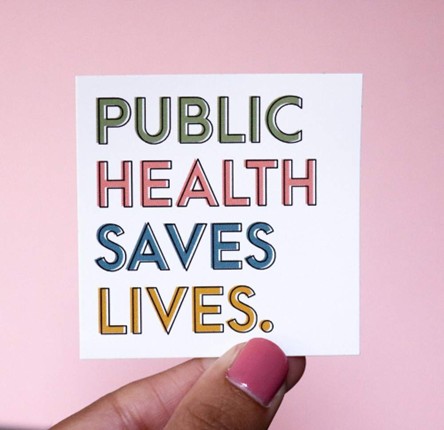
PUBLIC HEALTH INTRODUCTION AND HISTORY
WORKFORCE DEVELOPMENT SERIES
ARNOLD SCHOOL OF PUBLIC HEALTH
UNIVERSITY OF SOUTH CAROLINA
Dr. Mary Jones | Director of Workforce Development | June 2025
This course is a part of the Arnold School of Public Health’s Workforce Development Series.
This course provides a comprehensive overview of public health from its historical roots to defining what public health is today. It also teaches participants how governmental public health agencies are organized while covering the core public health functions and 10 Essential Public Health Services. Overall, the course is designed to give you a better understanding of the core concepts of public health.
It is completely self-paced and you can work at your own speed. To complete it you must watch all module videos and complete the quizzes. At the end, you will be asked to provide feedback on the course.
This course offers 8 hours of continuing education credits.
This Module addresses the following Council on Linkages’ Core Competencies for Public Health Professionals (2021):
-
- 1.1 Describes factors affecting the health of a community
- 4.1 Applies principles of ethics, diversity, equity, inclusion and justice
- 4.2 Engages in continuous self-reflection about one’s biases
- 4.3 Recognizes the diversity of individuals and populations
- 4.6 Contributes to achieving and sustaining a diverse, inclusive, and competent public health workforce
- 4.7 Advocates for health equity and social and environmental justice
- 5.1 Describes conditions, systems and policies affecting community health and resilience
- 5.2 Establishes relationships to improve community health and resilience
- 6.1 Describes systems, policies and events impacting public health
- 6.2 Applies public health sciences in delivering the 10 Essential Public Health Services
- 8.1 Creates opportunities to achieve cross-sector alignment
- 8.2 Implements a vision for a healthy community
Free
PUBLIC HEALTH APPLIED PRACTICE ACTIVITY-VIRTUAL POVERTY SIMULATION
Poverty is a pervasive and complex issue with profound implications for individual and population health. Far from being solely an economic problem, its tendrils extend deeply into the social, political, and economic determinants of health, shaping the very fabric of well-being and contributing significantly to health inequities. This activity engages learners in a powerful experiential learning tool. By immersing participants in the realities and challenges faced by low-income individuals and families, this simulation provides a visceral understanding of how the social determinants of health – encompassing factors like access to education, stable housing and employment, nutritious food, safe environments, and equitable policy – interact to create barriers to health. Through this lens, we will explore how poverty simulations illuminate the mechanisms by which these determinants contribute to differential health outcomes across populations, thereby exacerbating health inequities and underscoring the critical role of public health in addressing the root causes of poor health.
Upon completing the course, participants will be prompted to submit responses to the following questions:
- How many tries did it take to get through a month in the Spent exercise (if you could at all). What did you have to do to get through the month?
- In relation to poverty, discuss the social, political and economic determinants of health and how they contribute to population health and health inequities.
- Describe one technique that you think will reduce the impact of determinants/disparities in relation to your specific public health practitioner role?
FOR QUESTIONS
Please contact:
Mary Jones, PhD, MPH
Director of Workforce Development/Adjunct Faculty
Arnold School of Public Health
University of South Carolina
Email: Jonesmary@sc.edu
Phone: 803.777.8980
